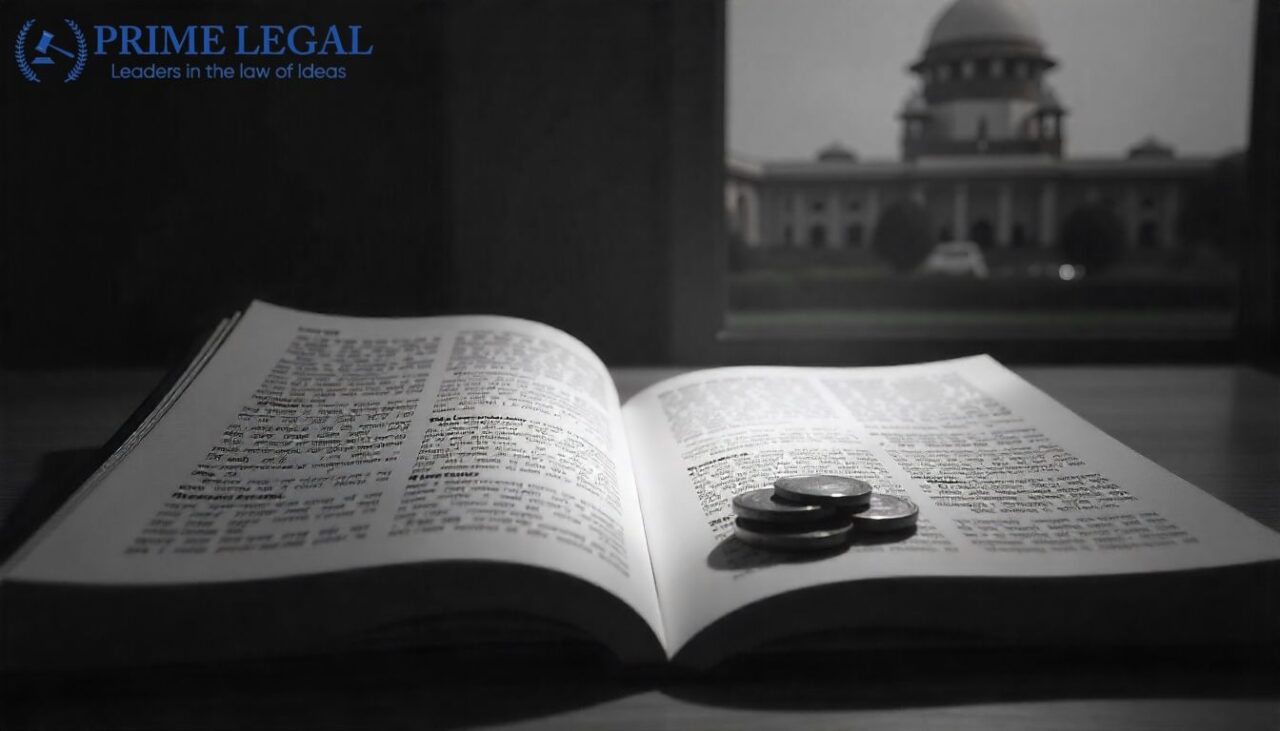Introduction
The Supreme Court of India has reiterated an essential tenet of the jurisprudence of taxation – tax liability should be imposed demonstrably and explicitly by a statute. This is a barrier against tax being levied or collected except by the authority of law, and this protects the taxpayer from arbitrary imposition or even fines that are inferred. The Courts’ decision reiterates the constitutional edict embodied in Article 265 of the Constitution of India and requires that tax statutes be construed literally and strictly.
Background
In India, as per Article 265 of the Indian Constitution no tax can be levied or collected except by authority of law. “This constitutional provision is a check against arbitrary taxation, and prevents the imposition of a tax, through uncertainty, unless it has the sanction of legislation. The term “law” only refers to a statute enacted by Parliament or a State Legislature.
Numerous judicial decisions support this principle. For example, Tangkhul v. Simirei Shailei AIR 1961 Manipur 1 and U.P. Pollution Control Board v. Kanoria Industrial Ltd., AIR 2001 SC 3174, have all established that taxation without explicit legal authority is unconstitutional. This principle provides the legal basis for the requirement that no tax liability can be imposed unless it is laid down explicitly and clearly in the legislation, protecting the people from unauthorized or retrospective tax assessments.
Key Legal Principles
- The Supreme Court has taken a rigidly constructionist view on tax liability impositions in statutes. The language of the statute and not any other consideration should subject to tax, and taxing statutes are not to be given a wide-interpretation based on anything other than what is pointed out by plain words of the statutory provisions.
- Charging provisions, which create the liability to pay tax, must be worded clearly and unequivocally. The Court held in CIT v. B.C. Srinivasa Setty (1981) 2 SCC 75 that no taxing measures can be imposed implicitly, and judicial interpretation should not be used to fill legislative voids to expand the scope of tax law.
- This decision is in line with the legality principle in charging taxes, which states that taxes must be predictable, unambiguous, and have legislative basis. The legality principle has the function to shield the taxpayer from arbitrary and retrospective taxes.
- The Court makes a distinction as to charging provisions and machinery provisions. Tax lien provisions are to be strictly construed while machinery sections that facilitate collection of the tax are liberally construed so that the statute can be administered. This being the contradiction established in Godfrey Phillips India Ltd. v. Commissioner of Central Excise 2021 SCC OnLine CESTAT 117.
- In short, the Supreme Court exercises judicial discipline in the construction of tax statutes. By allowing the collection of revenue, it also protects a taxpayer from being held liable when the law does not make it sufficiently clear they are liable, preserving fairness and the supremacy of legislation.
Recent Developments
Recent judgments of the Supreme Court have strongly reaffirmed the need for unambiguous legislative language to impose taxation. The Supreme Court has consistently rejected the extension of tax liability at the wrong finder’s, or the revenue’s suggestion based solely on implication, presumption, or analogy. The Court further strengthened that taxpayers cannot be penalized for ambiguity or purported deficiencies, distributing the burden of clarity solely on the legislature.
The Supreme Court’s decision has arrived within an ever-increasing complex taxation arena, where legislative changes occur often and laws are convoluted, limiting clarity. The Supreme Court’s decision is an important beginning of boundaries against executive excesses and creates predictability and fairness of a tax scheme. The doctrine now forms an important judicial protection against unreasonable government-imposed obligation in the constitutional scheme of India’s tax regime in-line with rule of law.
Conclusion
The Supreme Court’s unequivocal determination that taxation can only occur on express legislative provisions confirmed an important constitutional protection. The strict, literal interpretation of taxing statutes was mandated to impose ceremonial limits on taxes that rested strictly on a clear legislative authority. In doing so, the Court protects taxpayers from unreasonable or retroactive tax demands, the separation of powers, and accountability to a democracy in the law of taxation. The concept remains a cornerstone of India’s tax law ensuring a fairness of tax principles and legal certainty.
“PRIME LEGAL is a full-service law firm that has won a National Award and has more than 20 years of experience in an array of sectors and practice areas. Prime legal falls into the category of best law firm, best lawyer, best family lawyer, best divorce lawyer, best divorce law firm, best criminal lawyer, best criminal law firm, best consumer lawyer, best civil lawyer.”
WRITTEN BY Stuti Vineet


